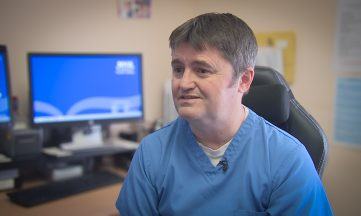Technology that allows police officers to gather data from mobile phones or tablets without a password is to be rolled out next week.
Police Scotland confirmed on Tuesday that the so-called cyber kiosks – digital triage devices – will be given to officers on Monday, January 20.
The kiosks are desktop-sized machines that enable the user to override encryption, in some cases, on devices such as mobiles and tablets.
Technology was due to be deployed earlier but the roll-out was hit by delays as MSPs called for greater clarity over the legal framework for their use.
A total of 41 kiosks have already been bought by Police Scotland and will be located across all policing divisions.
It is expected all of the kiosks will be operational before the end of May.
Police Scotland believe having the kiosks will allow lines of inquiry to be progressed at a faster pace, with officers being able to return mobile devices to their owners when they are having to assess them for potential evidence.
Officers will only examine the device of an individual when there is a legal basis and it is “necessary, justified and proportionate” to the crime under investigation.
They will not be enabled to store data from any devices and when an examination is complete all data will be securely deleted.
Deputy chief constable Malcolm Graham said having the ability to quickly assess which devices either do or do not contain evidence on them will minimise the intrusion into people’s lives.
“Many online offences disproportionately affect the most vulnerable people in our society… and our priority is to protect those people.”
Deputy chief constable Malcolm Graham, Police Scotland
“We are committed to providing the best possible service to victims and witnesses of crime,” he said.
“This means we must keep pace with society. People of all ages now lead a significant part of their lives online and this is reflected in how we investigate crime and the evidence we present to courts.
“Many online offences disproportionately affect the most vulnerable people in our society, such as children at risk of sexual abuse, and our priority is to protect those people.”
He added: “Increases in the involvement of digital devices in investigations and the ever-expanding capabilities of these devices mean that demand on digital forensic examinations is higher than ever.
“Current limitations, however, mean the devices of victims, witnesses and suspects can be taken for months at a time, even if it later transpires that there is no worthwhile evidence on them.
“By quickly identifying devices which do and do not contain evidence, we can minimise the intrusion on people’s lives and provide a better service to the public.”
A Scottish Government spokeswoman said: “We welcome Police Scotland’s ongoing work to adapt to changes in society, including the use of technology which can present both challenges and opportunities.
“It is important that the service continues to gather and manage evidence efficiently, appropriately, and in a way that supports victims and witnesses during the investigation process.
“More generally, the justice secretary has committed to setting up an independently chaired advisory group to consider whether there are any implications arising from emerging technological developments.
“Preparatory work is in hand and further announcements on the remit and composition will be made in the coming months.”
Follow STV News on WhatsApp
Scan the QR code on your mobile device for all the latest news from around the country























